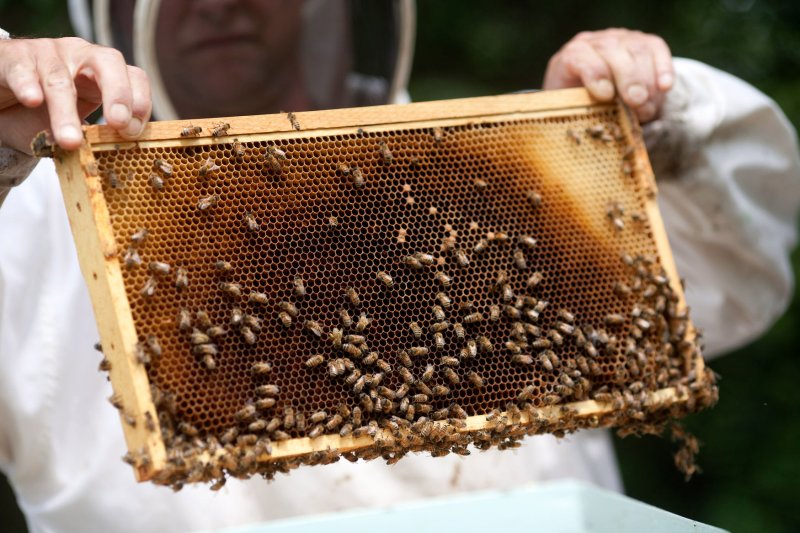BELTSVILLE, Md., March 9 (UPI) -- A "complex" array of factors is causing bee populations to decline quickly, which the United Nations says has dramatic implications on food and biodiversity.
At least half of the world's leading food crops rely on bee pollination for reproduction. Scientist list viral and fungal infections, as well as pesticides, for the decimation of bee hives across the world.















